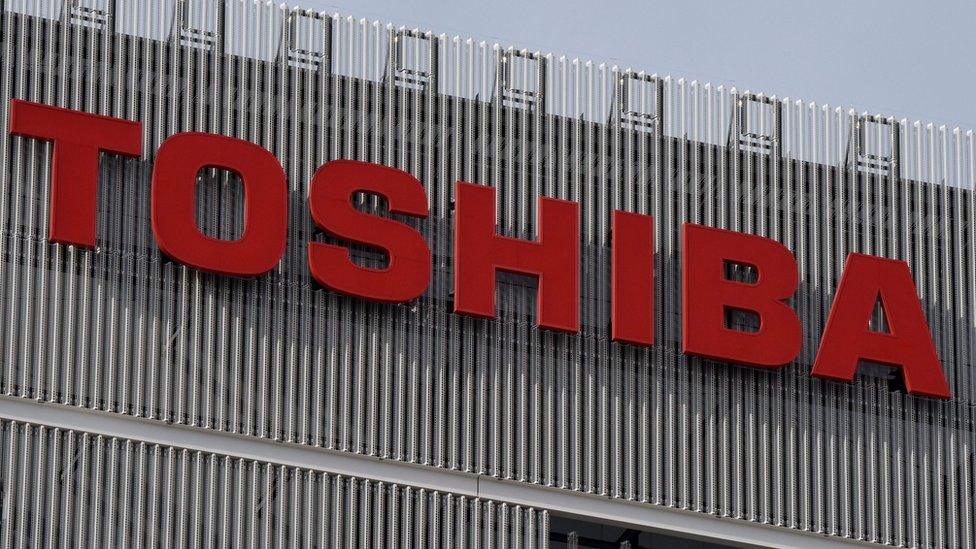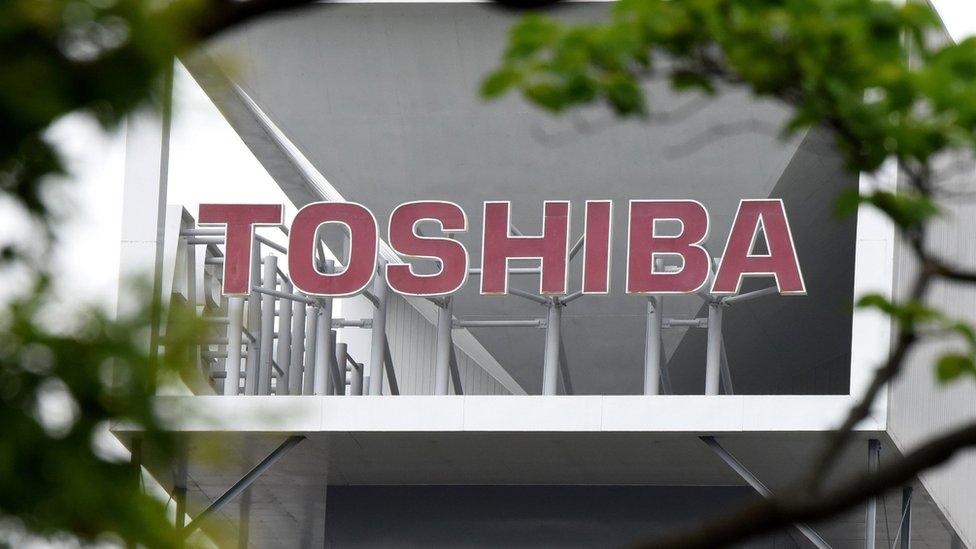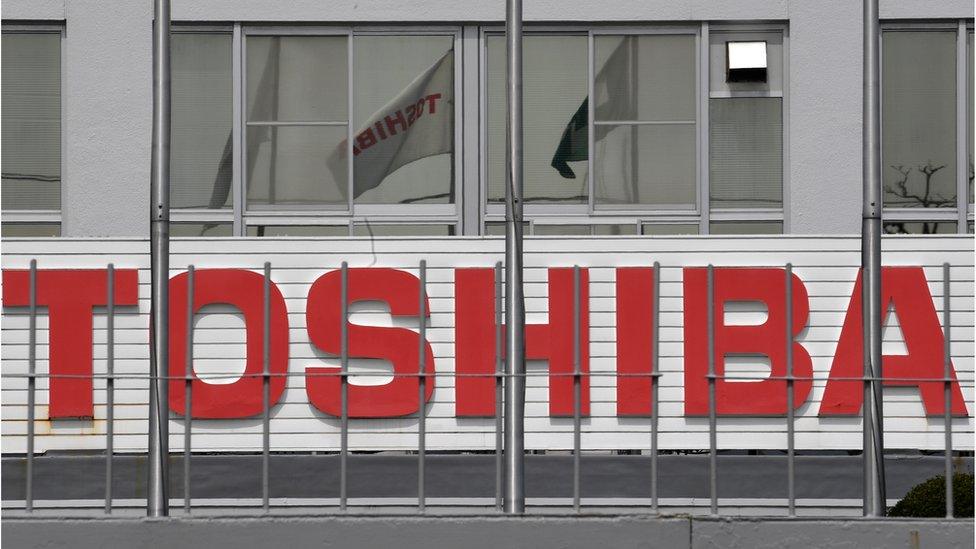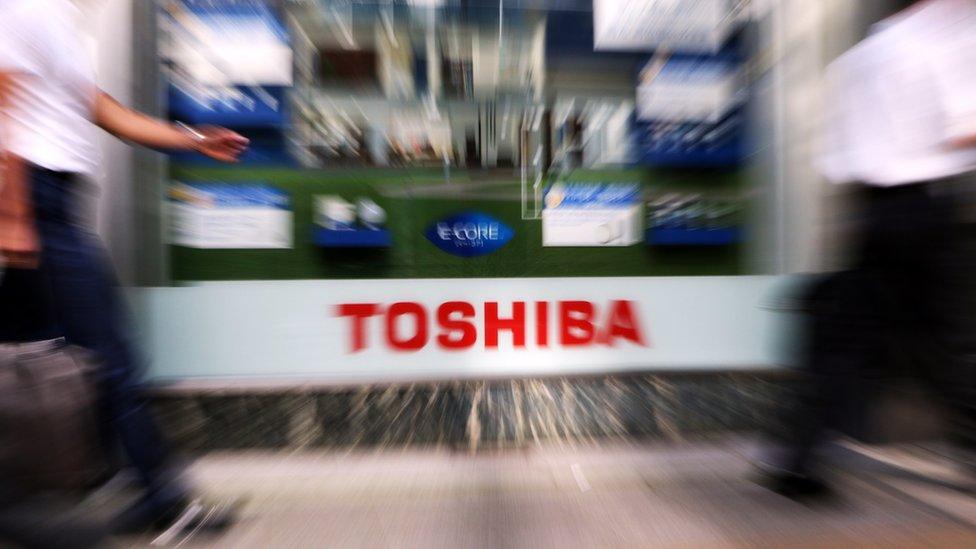Toshiba forecasts loss due to tax hit on chip sale
- Published

Toshiba expects to post a 110bn yen annual net loss (£732m) due to the tax impact of the sale of its memory chip business.
In August, the Japanese company said it would post a net profit of 230bn yen for the fiscal year to March 2018.
It agreed last month to sell its lucrative chip unit to a consortium led by private equity firm Bain Capital.
Toshiba needs to sell the business to cover billions in losses incurred at its US nuclear unit.
In a statement on Monday, Toshiba also said it expects to post a net loss of 60bn yen in the six months to September 30, down from its previous forecast for a net profit of 140bn yen.
Shares in the company dropped 1.2% in Tokyo trading, bucking the broader bounce on Japan's market after Prime Minister Shinzo Abe won a clear victory in weekend elections.
Chip unit sale
Toshiba, originally known for its consumer electronics products, has faced a series of difficulties in recent years.
An accounting scandal, uncovered in 2015, led to the resignation of several members of the firm's senior management, including the chief executive. The company was found to have inflated the previous seven years' profits by $1.2bn (136m yen).
Problems came to a head again in January this year, when it became clear its US nuclear unit, Westinghouse, was in financial trouble. The business, bought in 2006, had suffered years of cost overruns at its reactors and a downturn in global demand for nuclear energy.
To cover those losses, Toshiba agreed in September to sell its prized memory chip business for $18bn to the Bain-led consortium.
- Published21 September 2017

- Published10 August 2017

- Published29 March 2017
